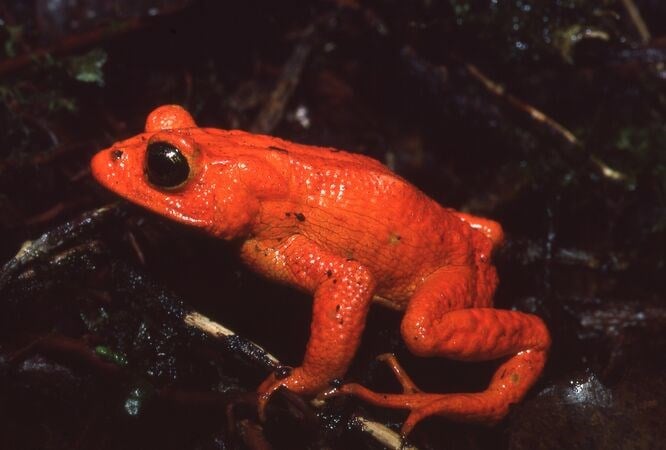Gone are the toads: The world may be entering its sixth era of mass extinction
Climate change threatens 11,475 species worldwide.
-

The golden toad... extinct!
The world may be entering its sixth era of mass extinction.
At one point in the elfin cloud forest of Costa Rica, golden toads would leap around in abundance, a representation of the forest's well-being and prosperity.
"The soils are very dark and so golden toads would stand out like animal figurines. It was quite a spectacle," said J Alan Pounds, an ecologist at the Monteverde Cloud Forest Preserve, Costa Rica.
In 1990, the golden frog, suddenly, was gone - because the toad could only be found in the Monteverde forest, its extinction was total. Upon its realization, causes were assessed to find out that climate change is the driver behind the extinction. Climate and the biodiversity crisis are interconnected.
Read more: Analysis says Australian government 'aggravating extinction'
The Intergovernmental Panel for the United Nations on Climate Change says that almost 1 in 10 of all species face an extinction threat.
Climate change, at the time when Pounds left to Costa Rica, was not a very popular concept - but, that did not chip away from any of its drastic effects on the environment.
The golden toad, the Monteverde harlequin frog, and more have suffered elimination.
Apparently, extinctions occur during unusually warm and dry weather periods; they were also linked to the chytridiomycosis infection. However, Pounds and his colleagues contended that while the disease can be attributed to the bullet, climate change was the trigger.
"We hypothesized that climate change and resultant extreme events were somehow loading the dice for these kinds of outbreaks," Pounds told AFP.
More animals suffer: the Bramble Cay melomys, a small rodent originating from Torres Strait island, was last seen in 2009. They are the only mammals endemic to the Great Barrier Reef (whose corals are bleached due to global warming as per recent reports), and their populations were downsized by sea-level rise and more.
Climate change threatens 11,475 species worldwide - and those are the numbers we know, provided by the International Union for Conservation of Nature. Around 5,775 are at risk of extinction.
Read more: IPCC report indicates dire urgency to avoid climate disaster
Top corporations fall short in fighting climate change
Some of the world's largest corporations are failing to live up to claims that they will achieve net-zero emissions targets, reducing carbon emissions by only 40% rather than the projected 100%, according to a new analysis.
Amazon, IKEA, Nestlé, and Unilever are among the firms cited as having little substance behind their assertions that they will dramatically reduce emissions.
The report's compiler, Thomas Day of NewClimate Institute, stated that the combined efforts of the 25 companies analyzed would have little influence. "It's unclear whether these cuts go beyond business as usual," he said. "We were both dissatisfied and surprised by the amount of opportunity for improvement [among the companies surveyed]. Companies must be far more open about their objectives."

 3 Min Read
3 Min Read











